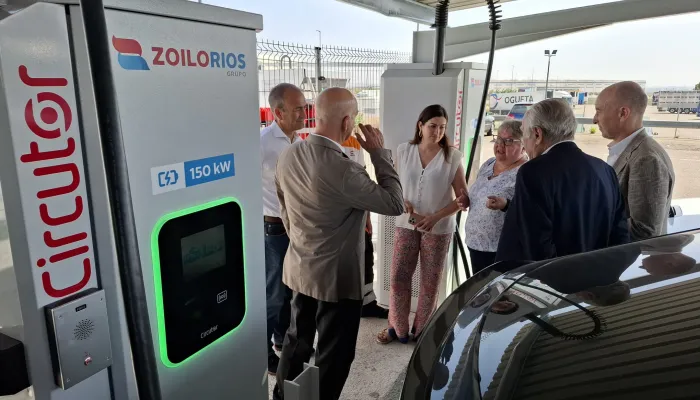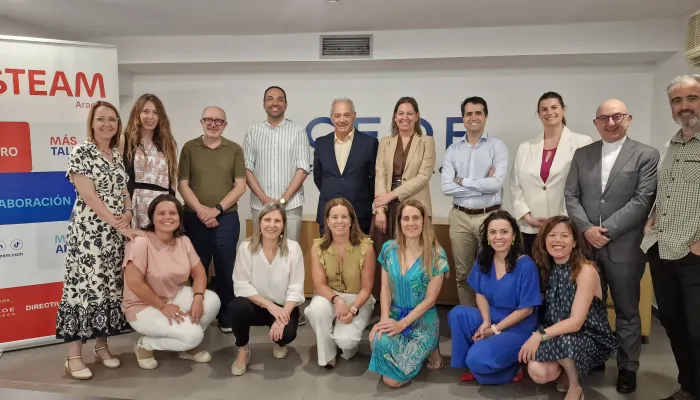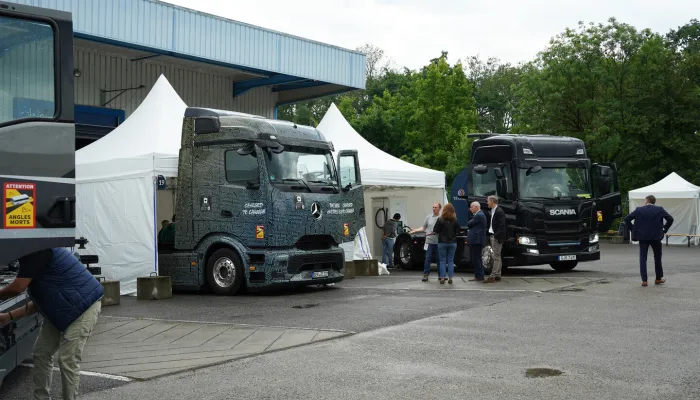CIRCE reaffirms its commitment to agricultural innovation and sustainability at FIMA 2024
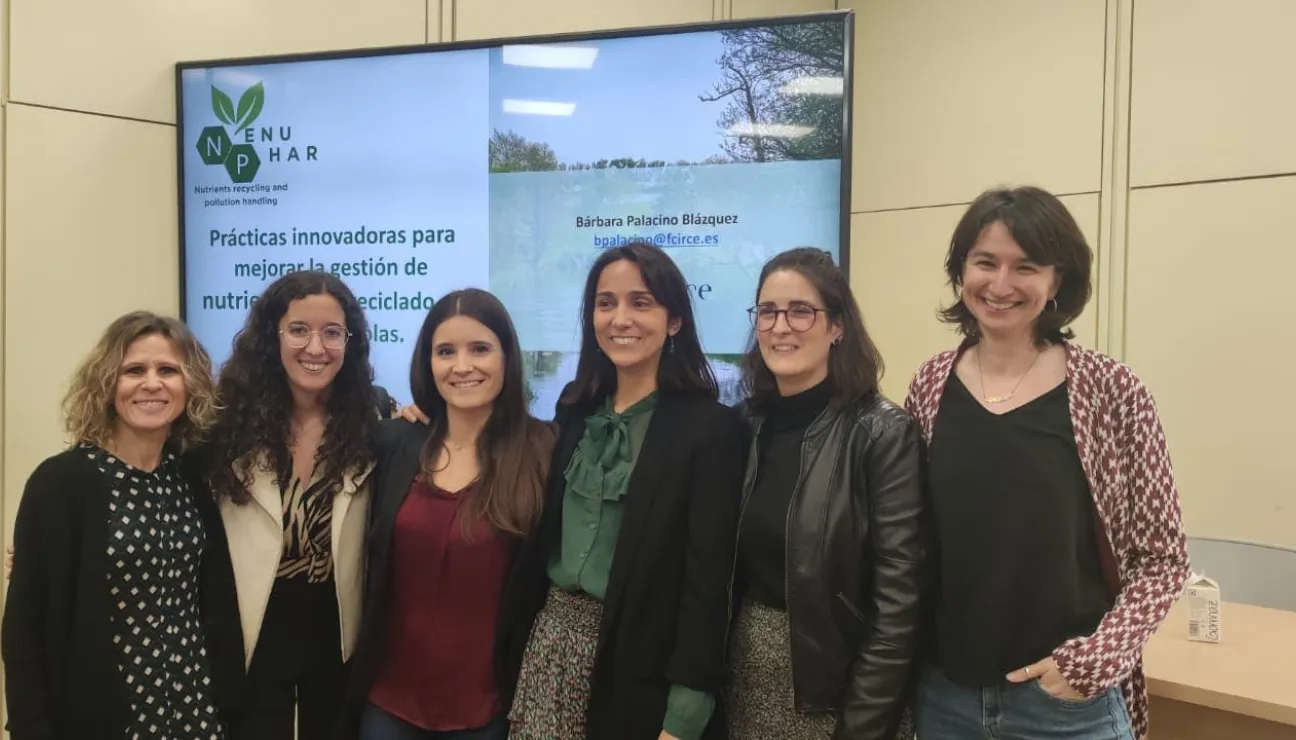
Within the framework of the International Fair of Agricultural Machinery (FIMA) 2024, one of the most important events for the sector, CIRCE-Technological Center has had the opportunity to participate in two technical conferences and of importance for the future of sustainable agriculture, thus reaffirming its commitment to innovation in this sector.
The European project NENUPHAR has been one of the protagonists of the technical sessions of the fair. Funded by the European Union and launched in November 2023, it addresses the urgent need to improve the management and recycling of nutrients in agricultural soils. The technology center is the coordinator of the project, which also includes the Canal de Cataluña y Aragón (CCyA); GESTCOMPOST and the Confederación Hidrográfica del Ebro (CHE).
The five innovative solutions in the management of waste and by-products in the agricultural and forestry sectors on which the technology center is working within the Cooperation and Operational Groups have also been the focus of another technical conference on agri-environmental sustainability.
NENUPHAR project: innovative practices to improve nutrient management
Nutrient pollution in ecosystems and record fertilizer prices create the need to recover nitrogen and phosphorus from waste streams. These new alternative feedstocks can be a solution to address both problems, enabling the supply of new fertilizers (and other products for the food value chain) at a competitive price while enabling cleaner soil, air and water systems. However, this requires an intensive policy, regulatory and governance effort that brings all stakeholders together.
The NENUPHAR project seeks to develop new governance and value chain solutions targeting three waste streams widely present in the EU: manure, sewage sludge and dairy wastewater.
The four main innovations of the project were presented at FIMA: a methodology for estimating nitrogen and phosphorus emissions, new collaborative governance models, innovative economic incentives, and advanced technologies for waste treatment and nutrient recovery. All of them are essential initiatives to achieve a balance between productive efficiency and environmental protection.
It has also addressed the work to be done. To do this, they have attended the entities participating in the Spanish demo to understand the situation of the Ebro basin, the current situation of farmers and ranchers, the regulatory framework and uses of biofertilizers in organic agriculture, and the pilot plant that is working to recover slurry and digestate from a stripping system.
NENUPHAR focuses on geographically diverse river basins: Ebro (Spain), Lielupe (Latvia-Lithuania) and Danube (Hungary-Slovakia branch). They will also be replicated in two island systems: Cyprus and Bornholm (Denmark).
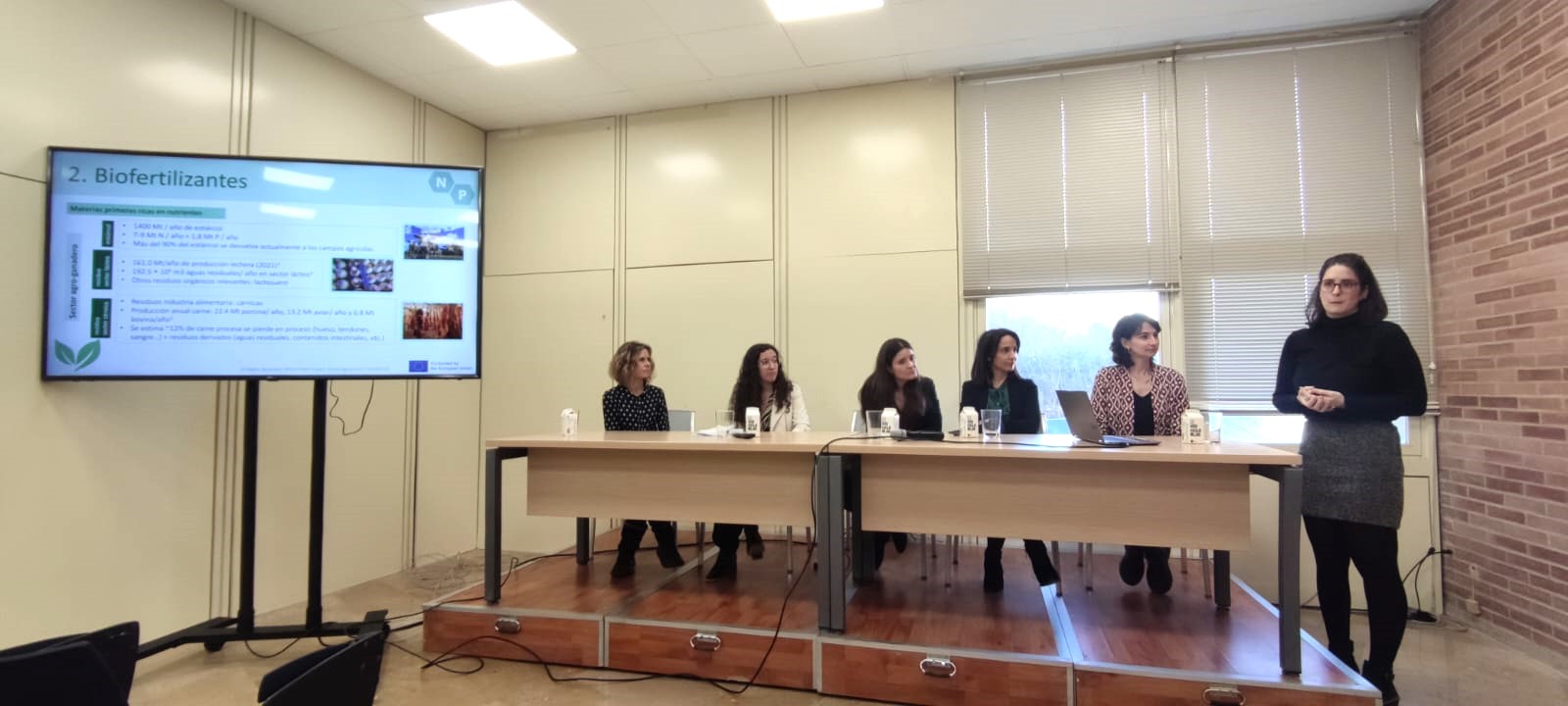
CIRCE is technically leading and coordinating the project
In technical leadership, CIRCE plays an essential role in the development of a methodology for estimating N/P emissions and waste mapping in the Aragon region, being able to provide new services and transfer knowledge to companies based on these results.
Its participation extends to the monitoring and operation of the process in the Spanish demonstrator, expressing its commitment in crucial aspects of the scientific and operational dimensions of the project. In addition, the technology center is involved in other tasks, such as the new governance model, the current policies and competencies of each demonstration center, as well as in the implementation of technical solutions and the generation of project deliverables.
As a key output, it will lead the development of a guide that will provide recommendations to foster the design of modern nutrient management policies and research agendas, future-proofed and tailored to the needs of stakeholders.

Latest news
